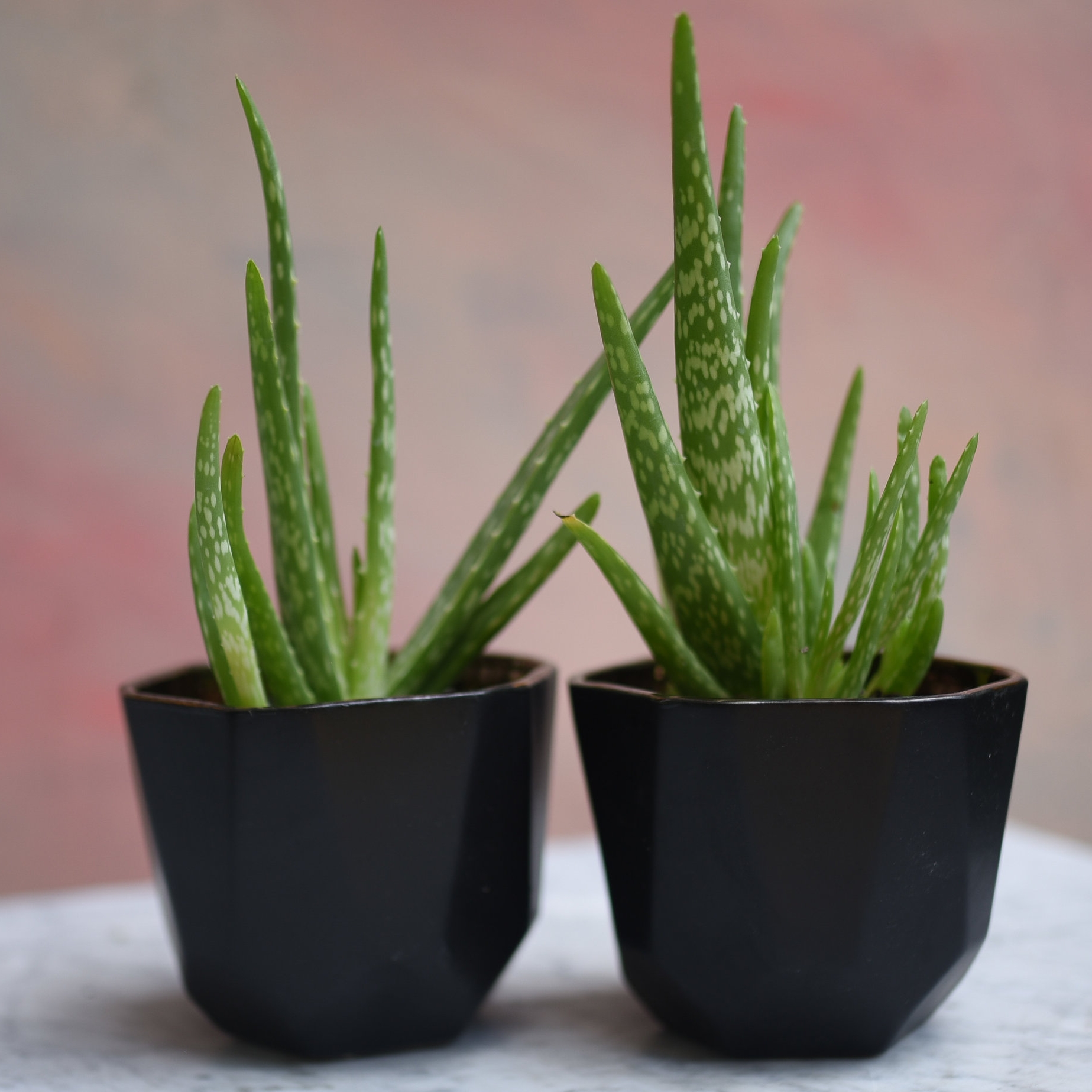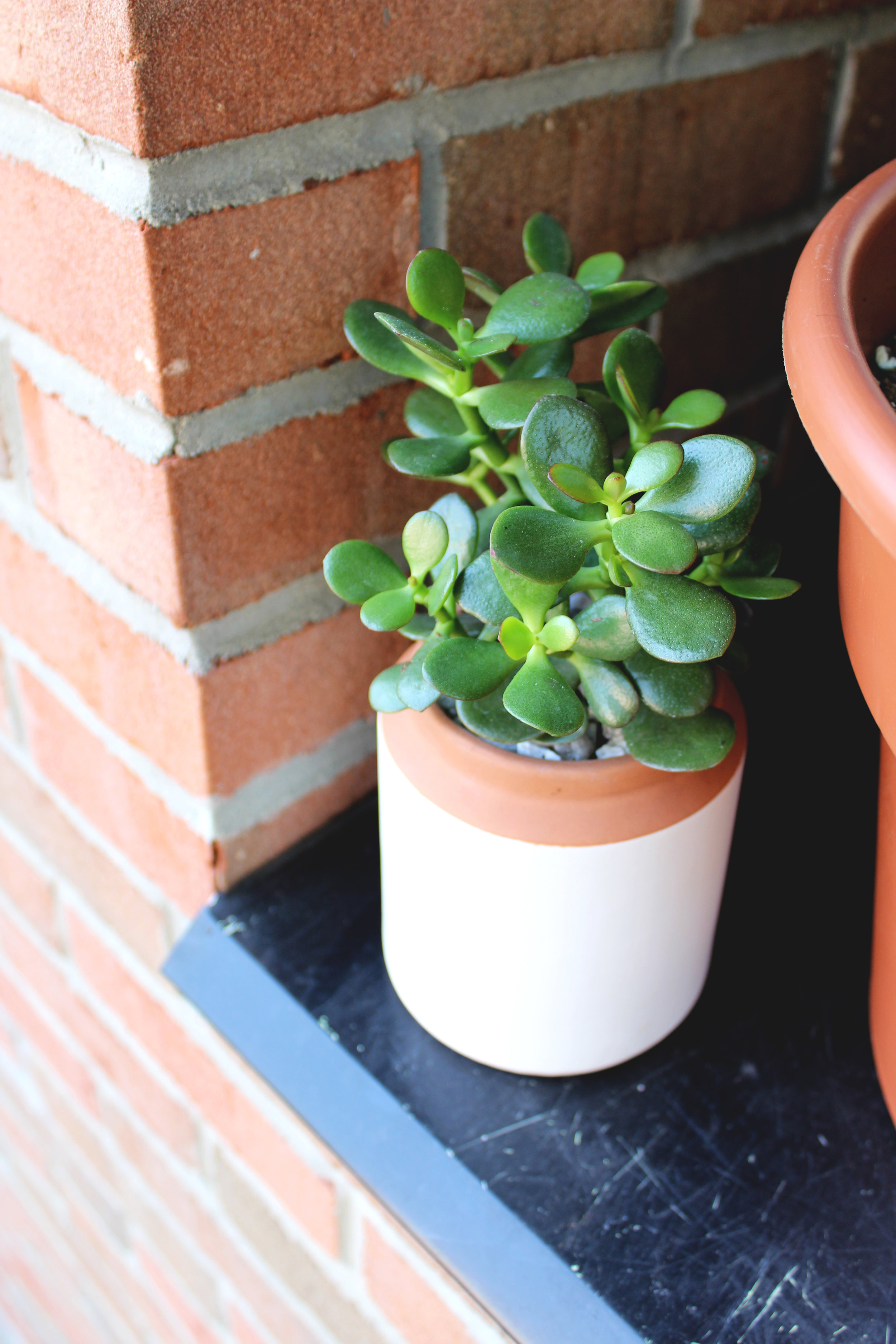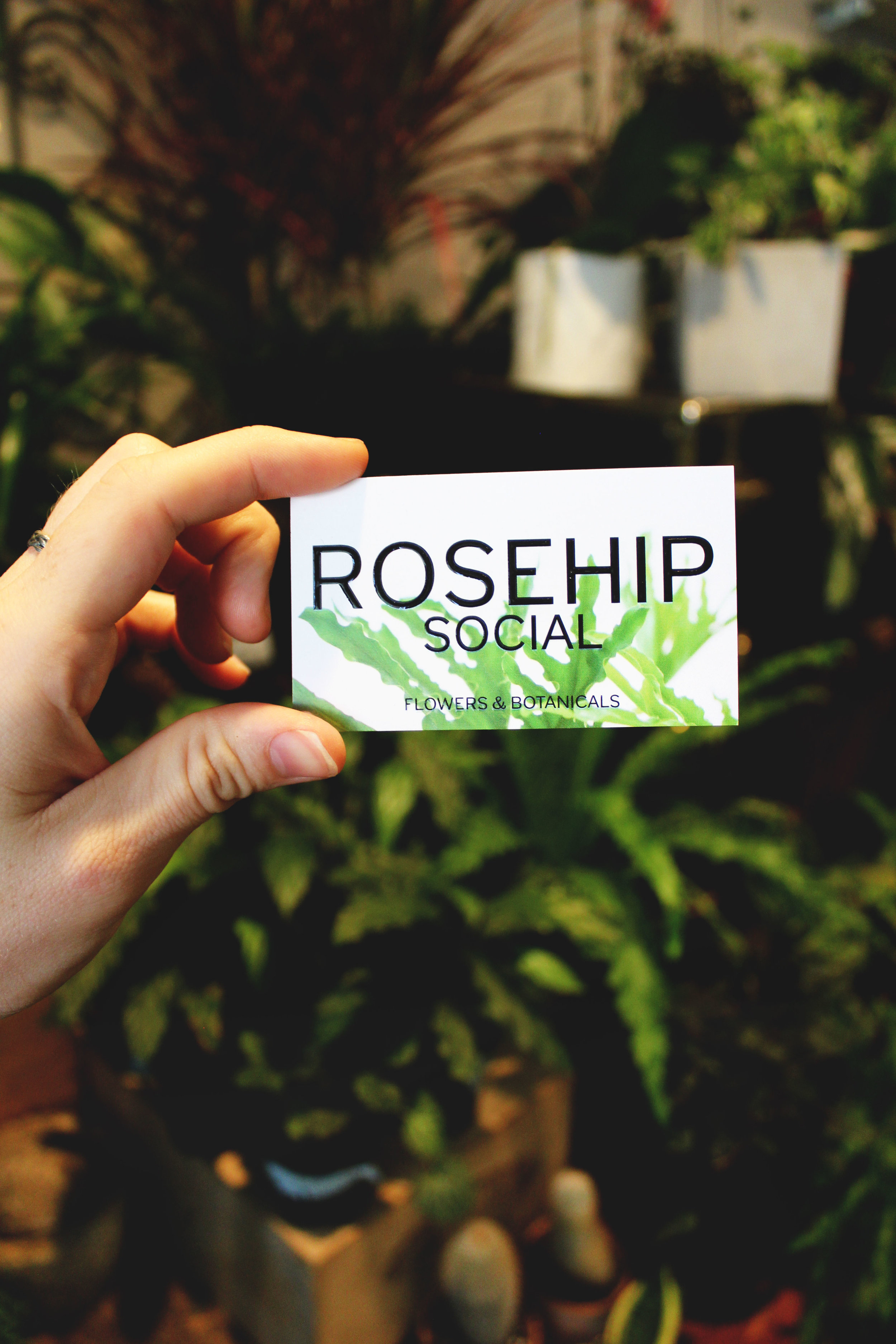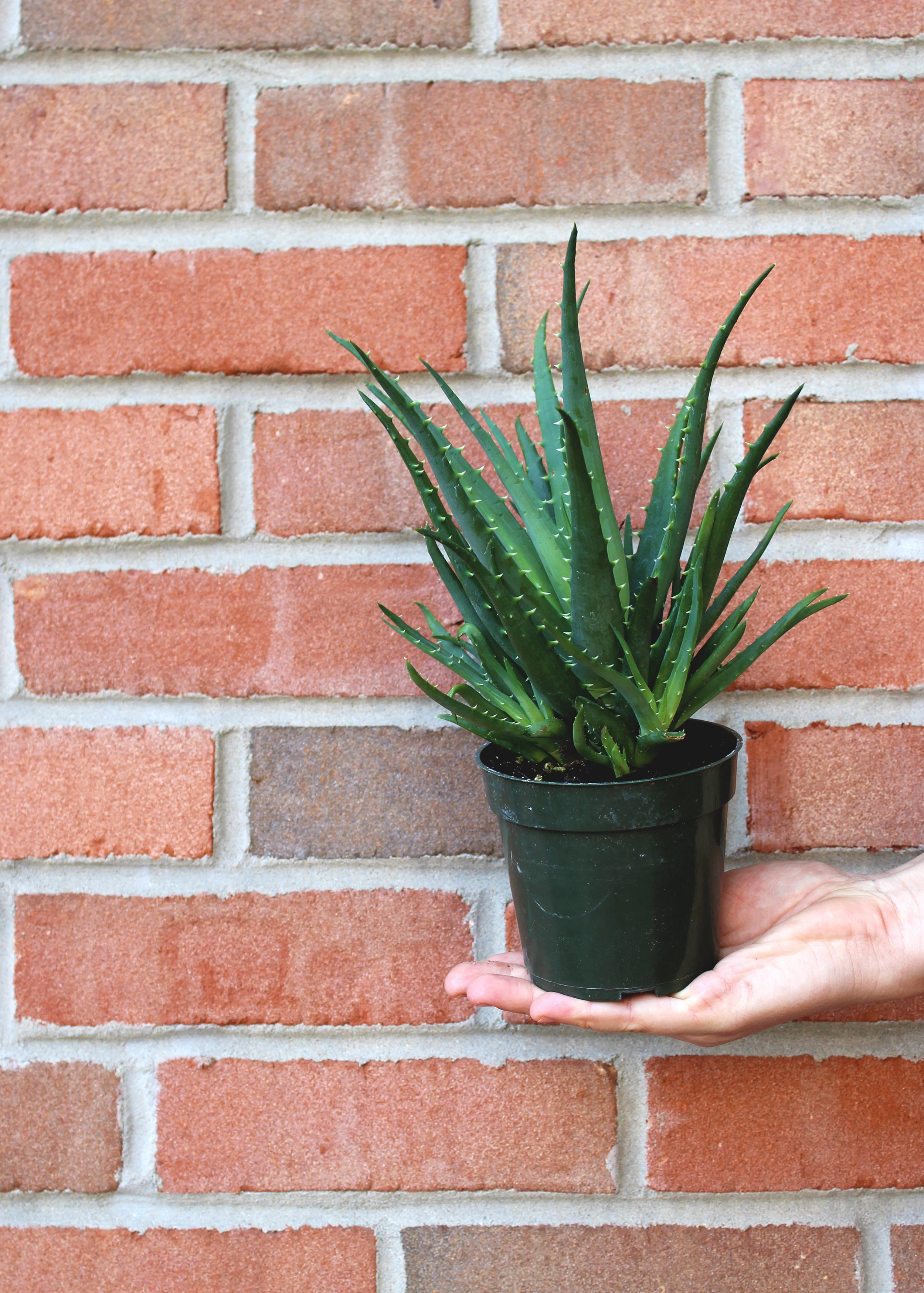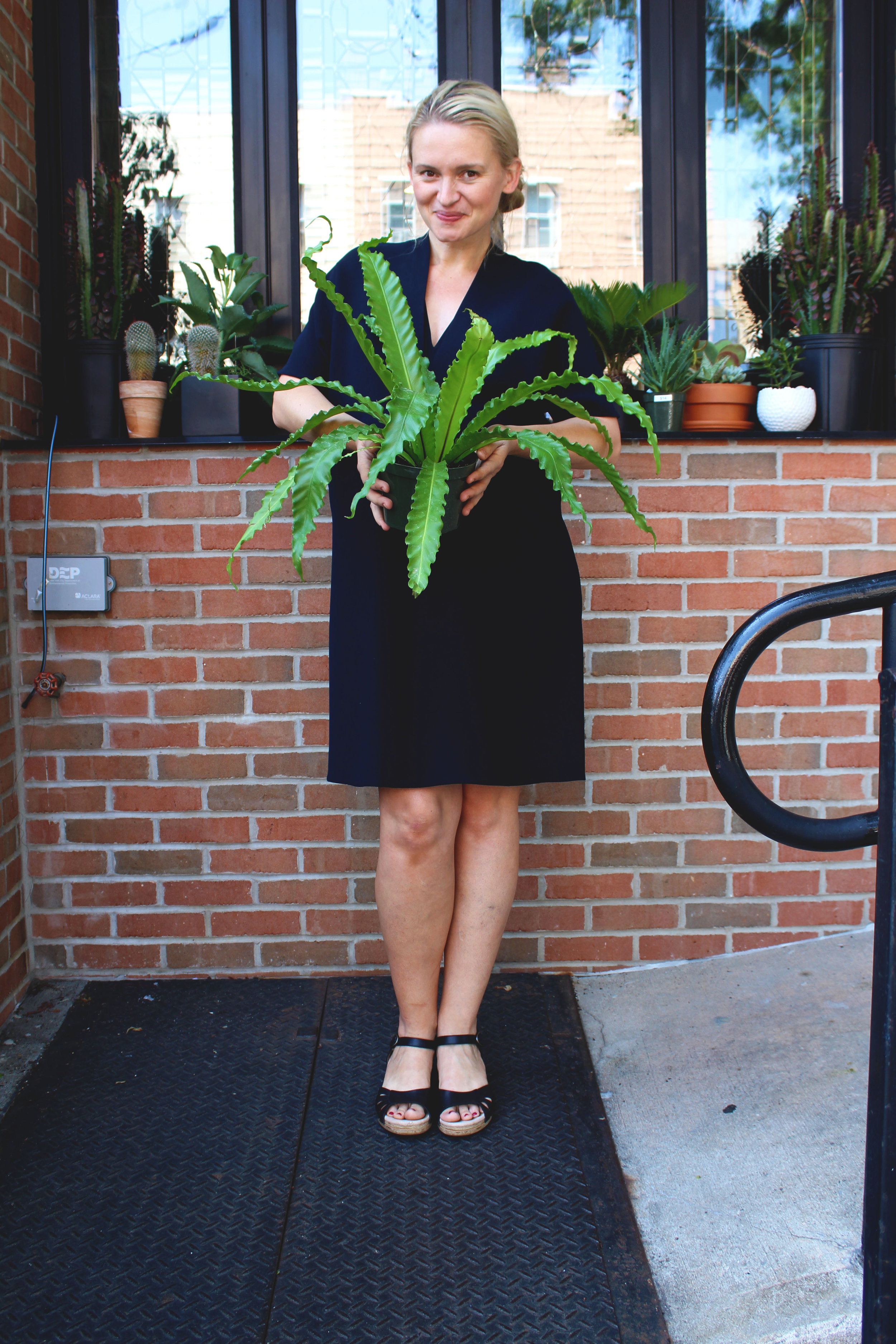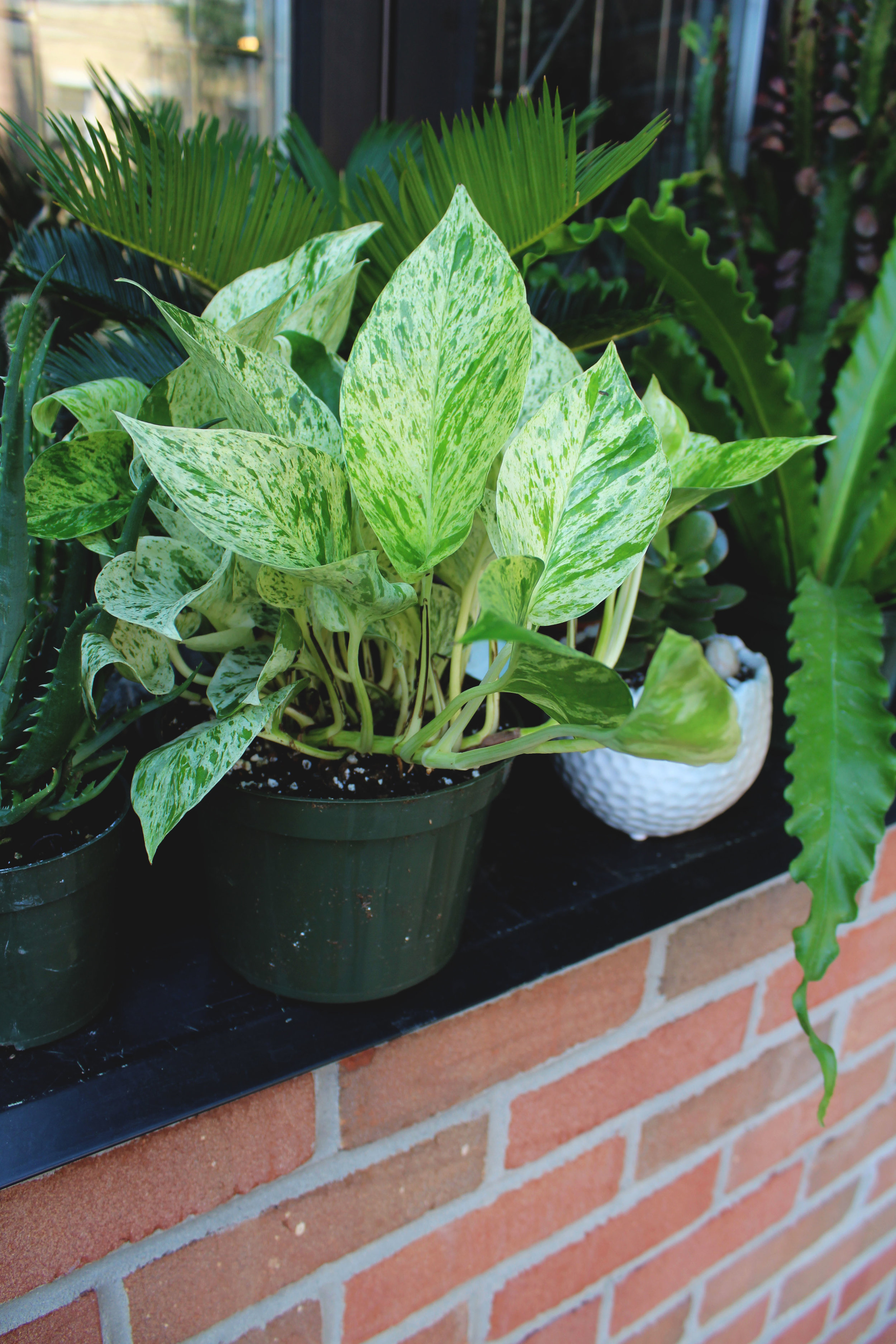Houseplants. Oh how I love seeing homes and interiors full of greens and plant-life texture! Over here, I try to fill our home with lots of them, but I've certainly killed more than my fair share of plants. Any time I'm craving a little refresh in our apartment, I head on over to my favorite local plant shop, Rosehip, and spend way more time than needed doing laps around the shop and "oohing" over all the beauties in there. We stopped by recently with a camera in hand and chatted with Pola, owner of Rosehip, about some of her favorite houseplants.
Some of my personal favorites for house plants (based on how easy it's been keeping them alive) have been Snake Plants, Jade, & Monstera. All of which are available at Rosehip! If you're a New Yorker — go ahead and visit Pola's shop. OR if you need to send along a gift to your favorite New York person — she can hook you up there too. Not only is she the friendliest, she's got a great eye for styling and has some fantastic planters and props available at the shop.
Pola has a great staff, who is also super knowledgable about plants (and who are all always eager to help you make your selection). I asked for a list of some of their favorite house plants, and what I got was jam packed with so much info that I decided to split it up into a couple of posts. Here are the first couple of favorite houseplants, written by Sarah Kenney from Rosehip Social Florist;
Tillandsia xerographica - Photo Courtesy of Rosehip
Tillandsia Xerographica
Tillandsia is a type of epiphytic plant with a few hundred species, about a dozen of which can be commonly found as houseplants. Native to Central and South America, air plants can grow in quite a variety of climates ranging from rainy tropical forests to dry, sunny environments. Epiphytic plants do not have root systems that need to be anchored in soil, and can be anchored to plaques and pieces of wood, or simply placed on a bright windowsill. Generally, air plants do well with medium-high humidity, proper air circulation, and filtered sunlight – east, west, and south facing windows with a sheer curtain are ideal. Best practice for watering is completely submerging your Tillandsia for a few seconds in tepid water 3 times per week. Alternatively, Tillandsia can be submerged in tepid water once per week for 15 minutes, but it is not best practice. If the leaves of your air plant begin to curl inwards, it is not receiving enough water!
The perfect place to put your air plant? A frosted window of your bathroom with a fan for air circulation.
Aloe Vera - Photo Courtesy of Rosehip
Aloe Vera
This monocot of the Lily Family (Asphodelaceae) is thought to be native to Southern and Eastern Africa, though botanical historians are not sure of its exact origins. Records of its use date back to as early as 1750 b.c., and was used through the New Kingdom and Ptolemaic dynasties for healing, beautification, and embalming procedures. Once sought after by noteables such as Cleopatra and Alexander the Great, Aloe vera is now commonly grown as a house plant.
The Aloe vera grows in a rosette form, with fleshy leaves that grow up to 2 ft in length. The leaf has three sections: a center gel layer, a middle latex layer, and the outer epidermal layer. The inner gel layer - where most of the medicinal elements of the plant are found - can be harvested in two ways. After you sever the desired leaf as close to the base as possible, you may:
1) Gently squeeze the gel from the leaf as you would a tube of tooth paste.
2) Slice the leaf open long ways, and scoop the gel from the center with a spoon
Immediately discard any unused gel, as the active chemicals begin to degrade upon exposure to air.
Aloe vera has numerous medicinal properties, mainly as a topical salve. From Cleopatra using it as a mousturizing mask, to modern scientists testing its cancer fighting properties, this plant is justly known for being one of the most versitile medicinal plants. Other topical uses include cure for pain, antiseptic, abrasion healing, and moisture control. Aloe vera, when ingested, can also act as a gentile laxative as well as a blood sugar regulator. Aloe vera juice is now widely available at grocery stores, and is a great way to cut mid-day sugar cravings. Only small doses of raw aloe are recommended, and you should consult your doctor before ingesting.
A beautiful example of the Aloe vera plant can be viewed in the Gardens of Medieval Europe exhibit at The Met Cloisters in Fort Tryon Park, NYC. (http://www.metmuseum.org/visit/met-cloisters).
Pola, owner of Rosehip





